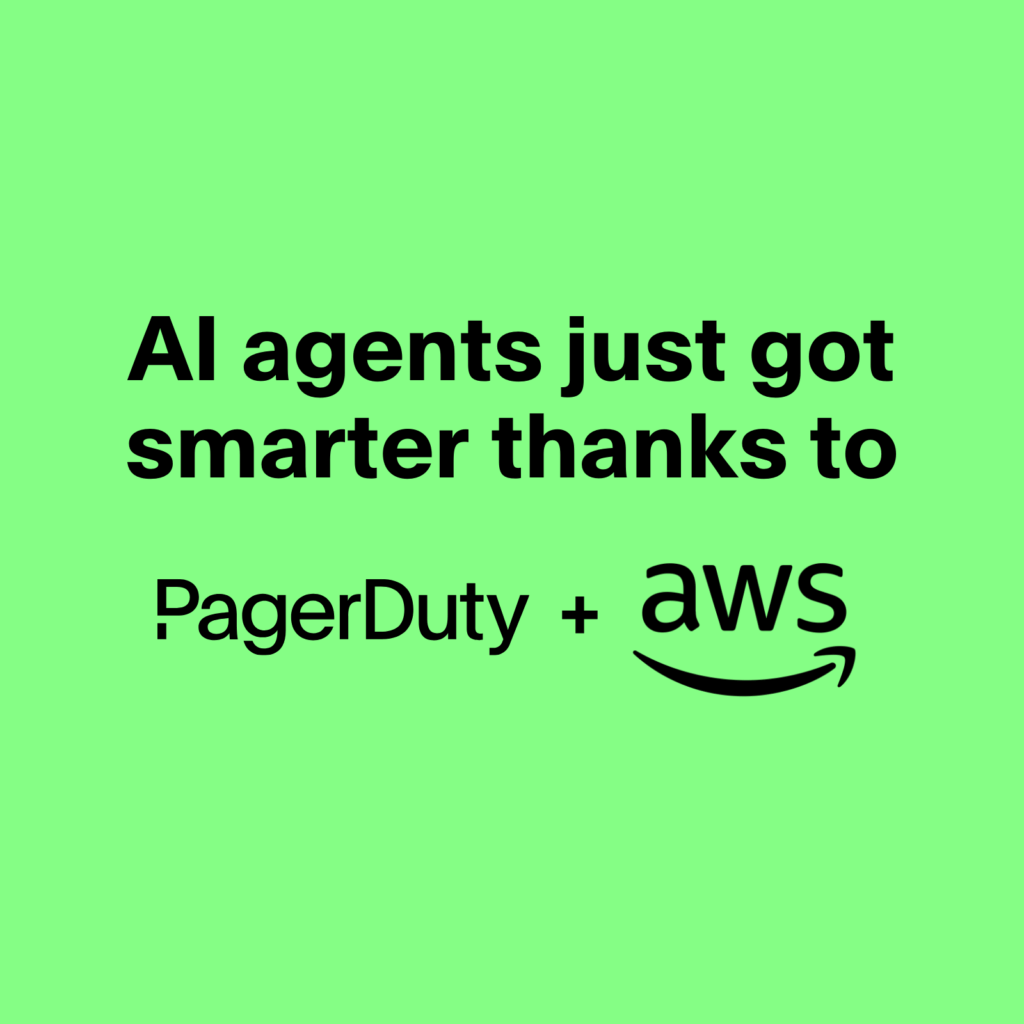Agentic AI Is Here—Are You Keeping Up?
Artificial intelligence (AI) has arrived in the workplace, powering everything from the personalization of tailored experiences, to automation, to predictive analytics, all for the purpose of better decision making.
No longer a buzzword tossed around in boardroom brainstorming or futuristic planning sessions, AI is a present-day reality reshaping how businesses operate. Generative AI kicked off the revolution, and its rapid adoption is changing how humans create and work. Now, companies are moving fast to capitalize on the next phase of AI-driven innovation: agentic AI.
While many organizations are still experimenting and just starting to implement their AI strategy, our recent survey with Wakefield Research reveals that agentic AI isn’t just a future concept, it’s already here. And forward-thinking companies are actively implementing it to drive unprecedented efficiency.
The age of AI agents
AI-powered assistants have been part of the workplace for years, helping automate repetitive tasks and streamline workflows. But these systems have always had limitations: they’ve followed predefined rules, executed scripted responses, and required human oversight whenever something fell outside their programmed parameters.
That’s changing. AI agents represent a new generation of AI that both assists and acts autonomously. Unlike traditional AI tools, these systems can independently gather data, analyze context, make decisions, and execute actions. What sets them apart is their proactiveness. Instead of passively following commands, they identify opportunities, optimize processes, and autonomously resolve problems before they escalate.
AI as a colleague, not a tool
Imagine an AI-powered co-worker that continuously monitors your organization’s workflows, detects inefficiencies before they cause delays, and takes corrective actions in real time. For example:
- Supply chain AI agents can dynamically adjust inventory levels based on real-time demand fluctuations, preventing stockouts or overstocking.
- AI-powered IT operations agents can identify potential system failures, reroute traffic to avoid disruptions, and even self-heal software issues without waiting for human intervention.
- Customer service agents can handle complex, context-aware conversations, learning from each interaction to provide increasingly personalized and efficient support.
This shift toward AI autonomy is already well underway. According to our survey of 1,000 IT and business executives across the U.S., U.K., Australia, and Japan:
- 51% of companies have already deployed AI agents in their organizations.
- Another 35% plan to deploy within the next two years.
- Combined, that’s an 86% adoption momentum, making AI agents one of the fastest-growing enterprise technologies today.
As businesses race to harness the power of agentic AI, one thing is clear: The future of AI is about autonomy.
Generative AI was the warm-up, now comes the hard part
When ChatGPT launched in November 2022, it sparked an AI gold rush. Practically overnight, businesses raced to integrate generative AI, eager to unlock new efficiencies and innovation. By mid-2024, generative AI adoption had skyrocketed: McKinsey & Company reported that usage of GenAI in at least one business function had more than doubled, jumping from 33% in 2023 to 71% in July 2024.
But scaling AI isn’t just about speed, it’s about getting it right. Many companies learned this the hard way.
Rushing in too quickly, overspending on tools, and lacking the right infrastructure left some organizations struggling to see real ROI. Now, as the next phase of AI arrives, businesses are applying these hard-won lessons to ensure they’re using AI effectively.
Instead of treating agentic AI as just another trend, businesses see it as a fundamental shift in automation and decision-making. One that requires thoughtful planning, investment, and execution. 44% of leaders believe agentic AI will have an even greater impact than generative AI, and 94% expect to adopt agentic AI even faster than they did generative AI.
Businesses expect even stronger ROI than GenAI has demonstrated
Companies aren’t investing in AI simply for the sake of technology. They’re betting on tangible financial returns, and the expectations are high:
- 62% of companies surveyed expect more than 100% ROI on their agentic AI investments.
- The average expected return is 171%, surpassing even the strong performance of generative AI.
- U.S. companies are even more optimistic anticipating nearly double their investment, projecting an average ROI of 192%.
These expectations aren’t speculative; they’re grounded in real-world results. Generative AI has already demonstrated significant financial upside, with companies reporting an average 152% ROI. Agentic AI is poised to go even further, offering full-scale workflow automation.
Navigating the risks
While the advantages of agentic AI are clear, companies are also keenly aware of the challenges that come with this new technology. As organizations increasingly adopt AI-powered solutions, they must address several critical risks to ensure a smooth and secure transition.
Top concerns with agentic AI
- Security vulnerabilities (45%) and AI-targeted cyber attacks (43%) are among the top concerns for businesses. As AI agents are given more autonomy, the potential for risks increases. Malicious actors can exploit AI’s capabilities to launch sophisticated attacks, making it crucial for organizations to prioritize cybersecurity measures.
- As AI becomes more integrated into business operations, organizations must ensure that their AI systems comply with existing data privacy laws, such as the General Data Protection Regulation (GDPR) and other regional legislation. These compliance hurdles mean that businesses must be agile in their governance practices.
PagerDuty’s AI-powered solutions can help organizations navigate many of these risks. Whether it’s proactively detecting anomalies, mitigating cyber threats, or ensuring AI models are operating reliably, PagerDuty Operations Cloud equips businesses with the tools to navigate AI adoption with confidence.
The time to act is now
While many organizations are still determining their AI strategy, the data is clear: Agentic AI adoption is happening rapidly, and companies that delay risk falling behind competitors who are already implementing and seeing returns.
As organizations move beyond viewing AI as just a productivity tool to seeing it as an integral part of their operational fabric, those with robust, AI-native digital operations platforms will have a significant competitive advantage.
Read the full report, including survey findings and methodology, to learn more about how companies plan to implement and deploy agentic AI.
For those still sketching out their AI roadmap, PagerDuty’s AI agents can improve operations for your business. Learn more about agentic AI with PagerDuty.


